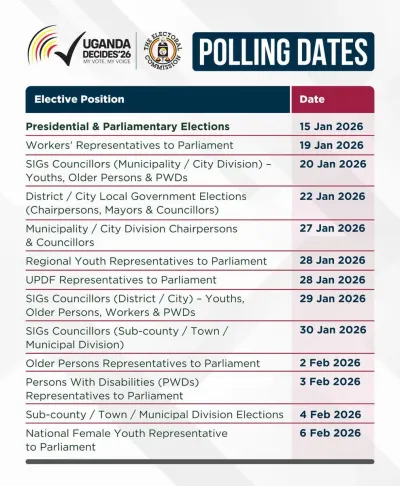

President Museveni has been in power for 30 years. During his stay a generation has emerged with no sense of accountability
Quite often we underestimate the damage caused when we deny people an explanation on whatever we do especially when the aftermaths of our actions are likely to have an impact on them. People are not like animals; they question whatever takes place and they need an explanation. This is when communication becomes a cardinal pillar in our day to day inter-personal relations.
When a father returns home late, if any, are aware that the children equally need an explanation.
The vast majority of young people fail to realize that it’s their responsibility to explain their actions. They hold an illusion that they don’t owe an explanation to anyone when it comes to their actions. This is possible because the very society that raises them has not showed it.
As a child you may have wondered why your mother used to prepare potatoes and beans at the time when you actually needed to eat chicken, meat and rice. May be you never got the chance to ask her. But even when you had that chance asking such a question would be insulting the decision makers at home, your parents. They also didn’t realize that a child of your age needed an explanation. They had reasons but you must have wrongly hated them and took them for sadists.
In any relationship both business and political, effective communication is a key to strong relationships and stability. Leaders ought to know that words from them are supposed to match with their actions, there should be commitment to two-way communication and bad news be communicated as effectively as good. Where things go contrary to expectation you must explain.
Business organizations view communication as a management function and not as a set of techniques. If an organization is a system with subsystems inter-connected to form one big functional unit this is only possible if the subsystems are connected by a communication network. A network that does not only enable each subsystem to appreciate the existence of other subsystems but also realizes their contributions to the final task.
The civil unrests against leaders, the industrial as well as school strikes, spring from the fact that somewhere there was a communication break-down. May be the officials fail to explain something to the aggrieved. In most Ugandan schools what they call communication is vested in meetings. But the so called meetings are reduced to briefing sessions by school leaderships or occasions for confronting management by some staff members.
Students will never trust teachers or administrators or open themselves up unless they sense that the school values and respects them. We all want to feel cared for and valued by the significant people in our world. Students are no different. Teachers wield a great deal of power over their students simply due to the fact that they control their destiny for many hours each day. Students will only accept this if they feel valued and cared for by those teachers.
Another challenge with communication is that quite often leaders (communicators) feel that it is their duty to communicate and not their responsibility to listen. But good orators are also supposed to be good listeners. Communicators who can’t find time to listen can never have the chance to understand the people they talk to. It’s after listening to people that we are able to understand how they think and thereby understanding the kind of audience we have.
Before communicating, three things must be considered: The message, the messenger and the method. Care must be taken when drafting the message. A good message must be crafted to resonate with the expectations of the people. Not everyone can communicate. A communicator must be in position to effectively deliver the message using the right methods. Wrong communicators cannot be given audience.
There is tendency by the public to think that strikes in schools are caused by trivial issues such as poor meals, falling standards, changing administrators and so on. There is, however, one thing the public always forget. We tend to forget that it’s what school authorities regard as simple matters that lead to wild reactions from students. With good communication between authorities and students such issues can be addressed and tamed before they run out of hand. At any one time people need an explanation as to why things happen the way they do.














Henry Lutaaya
Leave a Comment
Your email address will not be published.